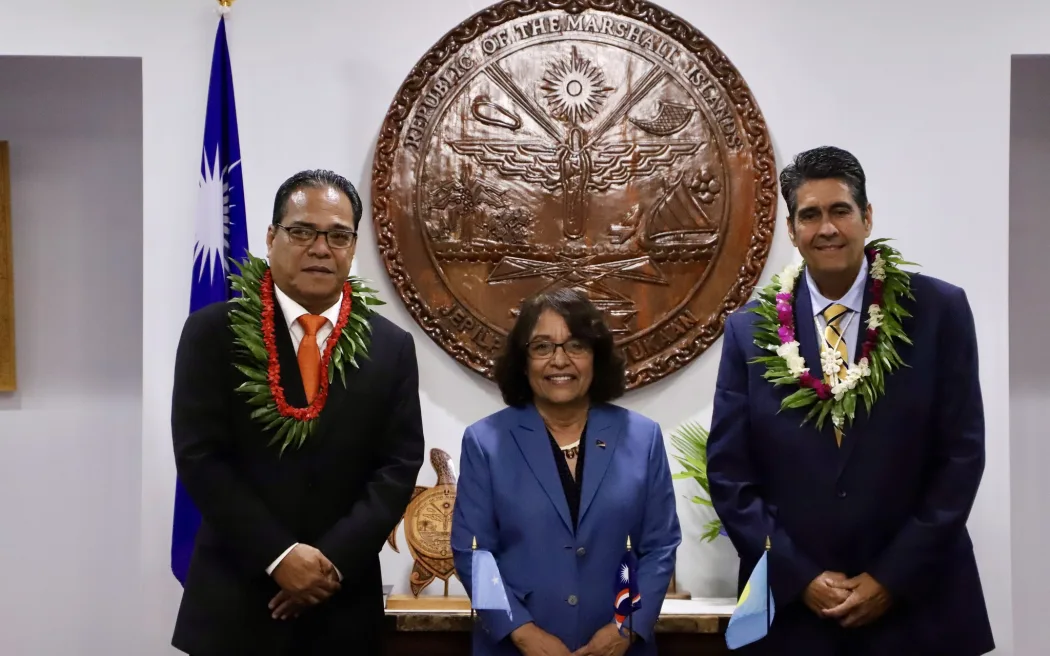The United States President Joe Biden has signed into law the Compact of Free Association (COFA) agreements after about a five-month delay.
The new COFA agreements include an additional 20 years of funding at higher levels for the freely associated states – Marshall Islands, Palau and the Federated States of Micronesia (FSM).
The U.S Senate on Friday provided US$7.1 billion in funding for the nations. It was approved as part of a US$460b spending package.
Marshall Islands President Hilda Heine said it represented a “very big step”, FSM President Wesley Simina said it “opens a new chapter”, and the Palau President’s office said it was “great news”.
“I look forward to completing the approval process and working collaboratively with the US government on implementation of the new Compact agreements which is crucial to the well-being of our citizens and security of our region,” President Heine said.
The new agreements also included special funds on climate change and additional health care needs beyond sector grants, a statement from the Marshall Islands President’s Office said.
The agreements give the U.S military access to freely associated states, which in return are given financial assistance and the right to work in the US.
The U.S Senate passed the compacts after mounting pressure from the freely associated leaders, who warned China’s influence could grow in the islands if it was not signed soon by Biden.
A letter dated on 9 February to the U.S Senate from Palau’s President Surangel Whipps said the U.S “plays in the hands” of China every day the compacts are not approved.
The same letter said some leaders wanted to accept “seemingly attractive economic offers” from China.
President Simina said the signing of the Compact Amendments Act 2023 “officially opens an important next chapter in our enduring partnership with the U.S through the compact of free association”.
He said the path to the agreement being signed had been longer than expected and a challenging road that raised concerns about if and when the agreements would enter into force.
“At the end of the day, the FSM and the .US reached an agreement on an outcome that I am confident will benefit both our nations and contribute to greater peace and prosperity for our people’s and to greater security and stability for the Indo-Pacific region and the world.”
RNZ Pacific Marshall Islands correspondent Giff Johnson said after five months of dysfunction the US finally figured out how to pass the compacts.
He said it is hard to say if the delay caused long term damage to the relationship the US has with COFA nations.
Johnson said the nations were “back-burnered” and it was a “pretty typical” of how Washington treats Pacific Islands.
Giff said next steps are for each of the three islands to approve the compacts.














